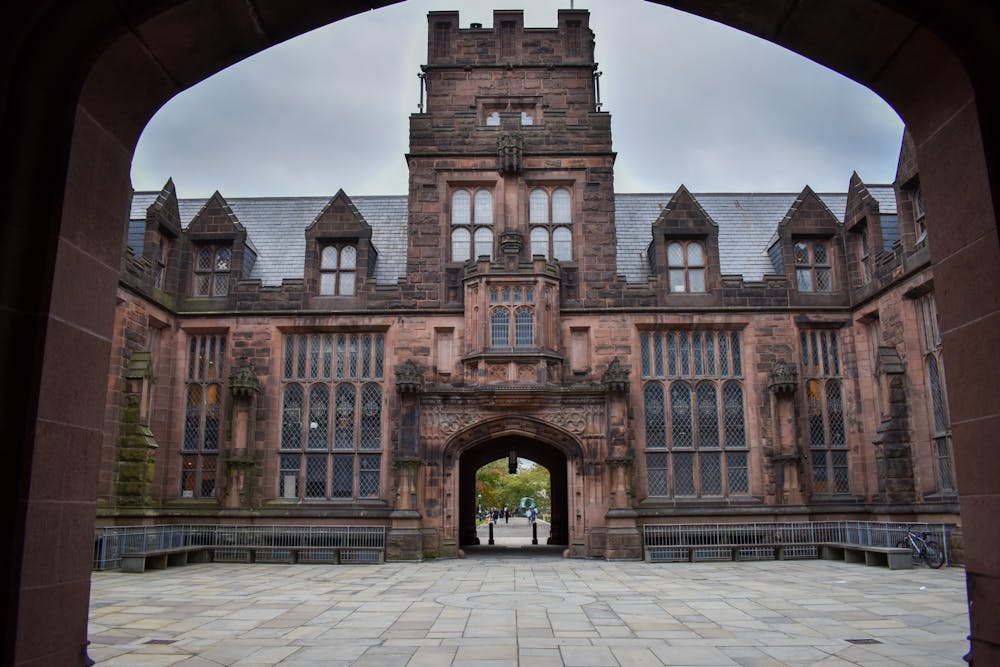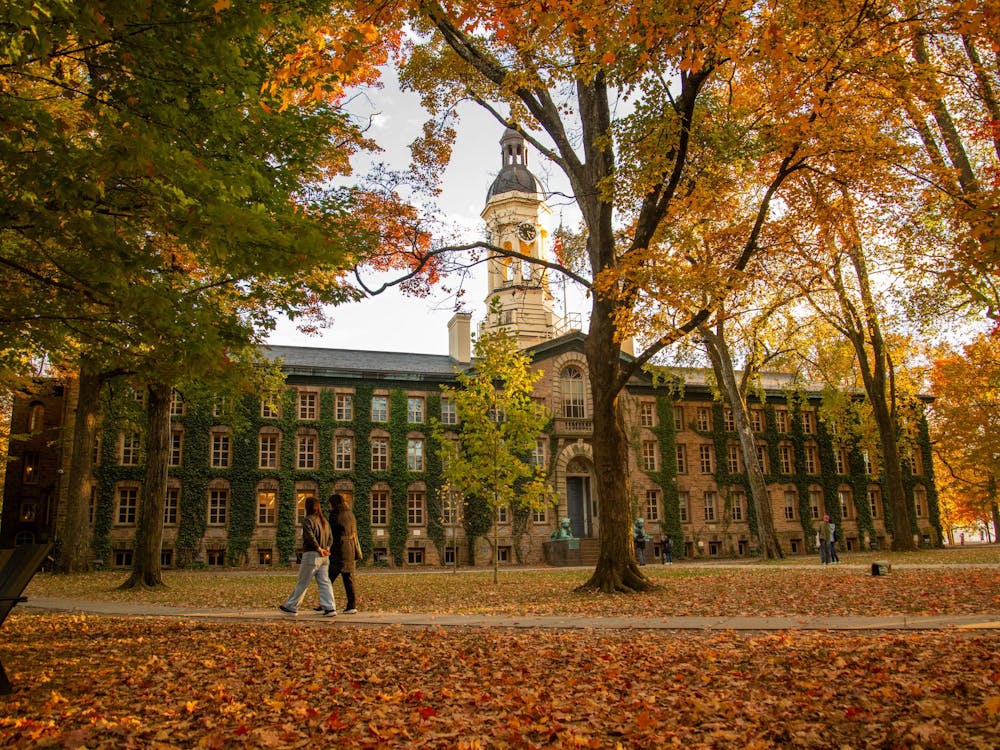In January 2023, Shaun Cason ’23 became the first Princeton transfer student to win the Sachs Scholarship, which allows students to pursue graduate studies at any institution outside of the United States.
This news marked a milestone for a relatively new transfer program, which was reinstated in 2016 after having been discontinued in 1990. The first students were admitted under the program in the fall of 2018, and in February 2022, the University announced that it would begin expanding its transfer program to admit between 25 and 35 transfer students annually.
With the reintroduction of the transfer program, the University has worked to accommodate transfer students’ different needs with orientation programs, a specialized writing seminar, and close work with the Princeton Transfer Association.
“We enrolled our first cohort in Fall 2018 with nine students, and I think now we have 60,” Keith Shaw, the Director of Transfer, Veteran, and Non-Traditional Student Programs, said in an interview with The Daily Princetonian. He noted how the total number of transfer students has grown since the reintroduction of the program.
This past fall, the University admitted 29 transfer students, its largest cohort since relaunching the program in 2018. Resurrected as an “access and inclusion initiative,” the transfer program was designed to enroll veteran, community college, and non-traditional students, Shaw noted.
The transfer application for Fall 2023 closed on March 1, and with a growing cohort, Shaw told the ‘Prince,’ “I’m proud of some of the moves we have made,” but noted that “there’s a way to go” to refining the transfer program at Princeton. Admissions decisions for transfer students arriving to campus in Fall 2023 are to be announced mid-May. Similar to the undergraduate application process, prospective transfer students can expect to see similar questions in their application portal.
Thomas Emens ’25, a prospective politics major who transferred to Princeton in Fall 2022 as a sophomore, reflected on his experience in an interview with the ‘Prince.’
“The transfer community is here for you at Princeton when it counts, they’ve enriched my life and made my transition to Princeton successful,” Emens said about the community.

Emens and Taehwan Kim, a first-year transfer student and veteran, noted how the application process was difficult for both of them.
“The application process was really tough,” Kim said in an interview with the ‘Prince.’ He credited Service to School and Warrior Scholars Project as aiding in his application.
Emens said that the application was “an intimidating process at first.” Ultimately, he “decided to just tell [his] story.”
Both Emens and Kim were admitted after the expansion of the transfer program was approved by President Christopher L. Eisgruber ’83 and the Trustees at the University.

“[We] looked at what was working, looked at where some improvements were to be made, and it was that moment that Eisgruber and the Board of Trustees agreed that it was time for a significant expansion,” Shaw said in regards to the full review of the Transfer Program that was conducted in 2021. Based on the perceived successes from this review, the transfer program was expanded to admit three times as many transfer students as prior years.
Shaw noted that the “competitive applicant pool” has allowed them to admit more transfer students than before.
Jordan Reed, Associate director of Transfer, Veteran, and Non-Traditional Student Programs, told the ‘Prince’ that there are initiatives to help incoming transfer students adjust to life at Princeton, a notable one being the transfer mentor program.
“The transfer mentor program is where some of our seasoned transfers who have been here from everywhere from a year up to two years get paired with a set of the incoming transfer students, they have coffee, they go on outings,” he said.
Beianka Tomlinson ’24, Vice President of the Princeton Transfer Association, noted that “the experience of a transfer student is different from traditional student, so we have to set them up for that.”
Along with the mentor program, Tomlinson mentioned that transfer students can expect to experience a different orientation from traditional undergraduate freshmen, including a transfer student welcome dinner, panel discussions with fellow transfer students, and a unique writing seminar during their first year at Princeton.
“It was important that a writing class for transfer students both acknowledged the value of what they already learned but then also taught them how to adapt it for the things they’ll do here,” Shaw said in regards to the structure of the writing program for transfer students. Similar to the writing seminar class all undergraduate freshmen are required to take, transfer students have a specialized writing class taught by Shaw and other Princeton professors.
Initially, the writing classes for transfer students was an individual class that every transfer student would be in, but with the expansion of the program, it is now three separate classes to accommodate the growing size of the transfer population.
“It was one of the hardest things I’ve had to do academically, but in the end it was really helpful and rewarding,” Kim said.
Emens said that the transfer writing seminar “truly helped prepare [him] for the type of research [he] would be doing here at Princeton.”
Reflecting on his transfer experience during his first year at Princeton, Kim said, “Even though we’re small, we’re a tight knit community.”
Tomlinson said that “we’re trying to figure out how we can still make the community feel like a transfer community.” She suggested that having “a transfer lounge so we can just go there, we don’t have to plan to meet, we can just go there” may be beneficial to maintaining a sense of community for transfer students as more are admitted.
Simone Kirkevold is a news contributor for the ‘Prince.’
Please send any corrections to corrections[at]dailyprincetonian.com.








